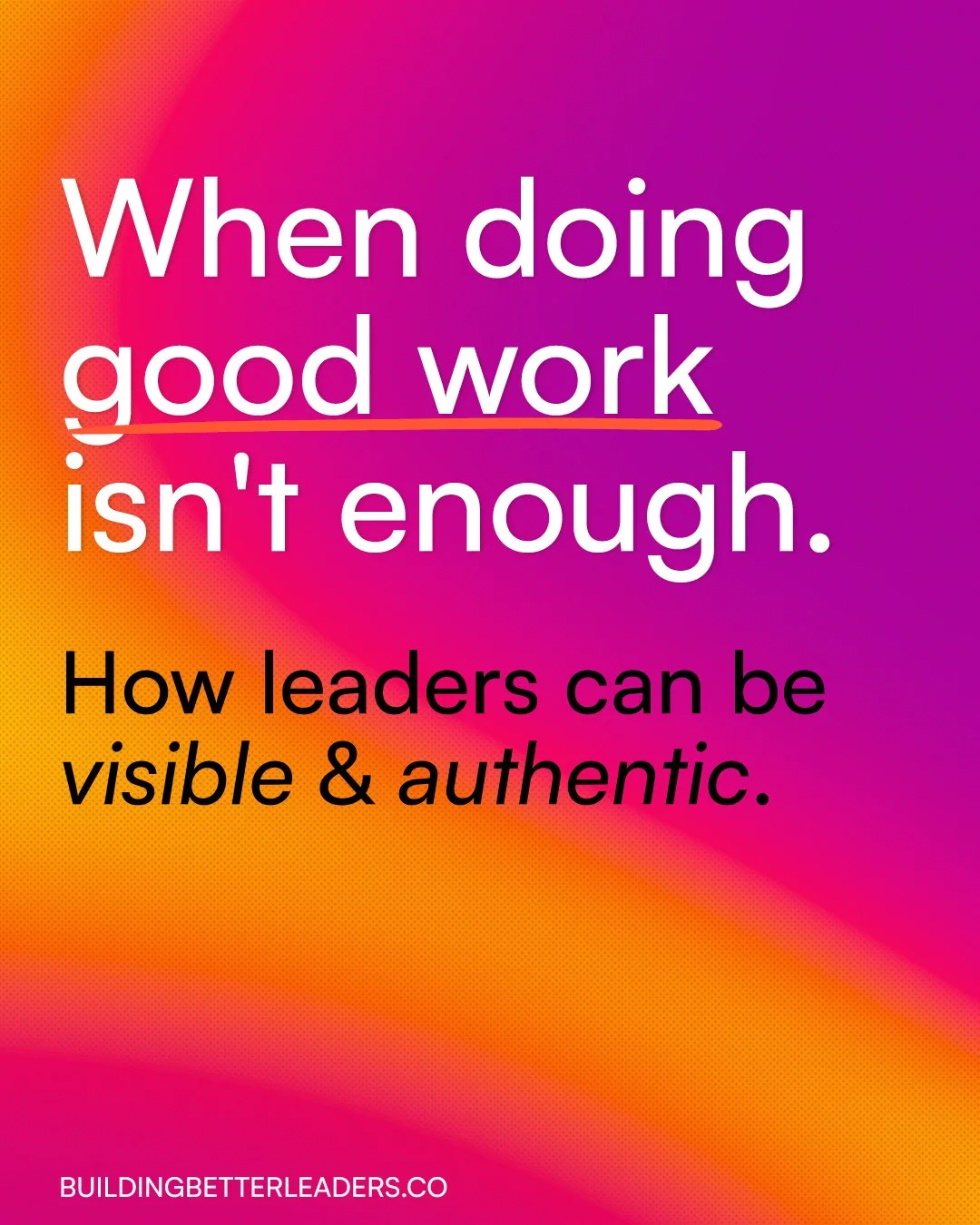When doing good work is not good enough: How leaders can be visible and yet, remain authentic
“Unfortunately, opportunities go to the people who visible and not necessarily to those who deserve them.”
It’s a hard truth to swallow, especially for those of us who believe in the power of purpose and doing the right thing. But in the real world, opportunities often don’t go to those who work the hardest—they go to those who are seen.
The Visibility Gap
Every leader knows someone who's brilliant, committed, and consistently delivers but goes unnoticed. Maybe you’ve been that person. Maybe you still are.
The challenge is that the workplace doesn’t always reward excellence. It often rewards visibility. And in many cases, those who make the most noise get the most attention regardless of whether their competency backs it up.
This IS NOT an invitation to play the game the same way. It’s a call to rewrite the rules with authenticity and intention.
Ethical Self-Promotion: Being Seen Without Coming Across as Schmoozing
Self-promotion has a bad reputation, especially for those from cultures where such behaviour is labelled as “bragging.” It can feel egoistic, performative, or inauthentic. But what if we reframed it?
When we share our good work, journey, lessons—we elevate others. And in doing so, we also elevate ourselves, not through ego, but by strengthening our identity and credibility as values-driven leaders.
In short, visibility isn’t about vanity—it’s about stewardship. When we become visible for the right reasons, we create meaningful impact:
We normalize the messy journey. Sharing struggles and lessons empowers others who may feel unseen or like they're failing.
We model what’s possible. Our transparency gives others permission to try, fail, and grow.
We open doors. Visibility can lead to new opportunities, not just for us, but for those we choose to champion. As leaders, we can amplify our teams, recommend them for projects, or highlight contributions that may otherwise be missed.
With Great Visibility, Comes Great Responsibility
Now that you understand the power of visibility, be careful not to reinforce visibility bias. Ask yourself, as a leader:
Are you only rewarding the people who speak up the most?
Who are the silent contributors around you? Are you championing them?
Are you creating platforms where quieter, undervalued roles can shine?
Lead the Change
In closing, being visible for your values and your competence does not make you less authentic. It makes your authenticity seen. But don’t stop there. Use this power to shine a light on the overlooked and lift them up.

